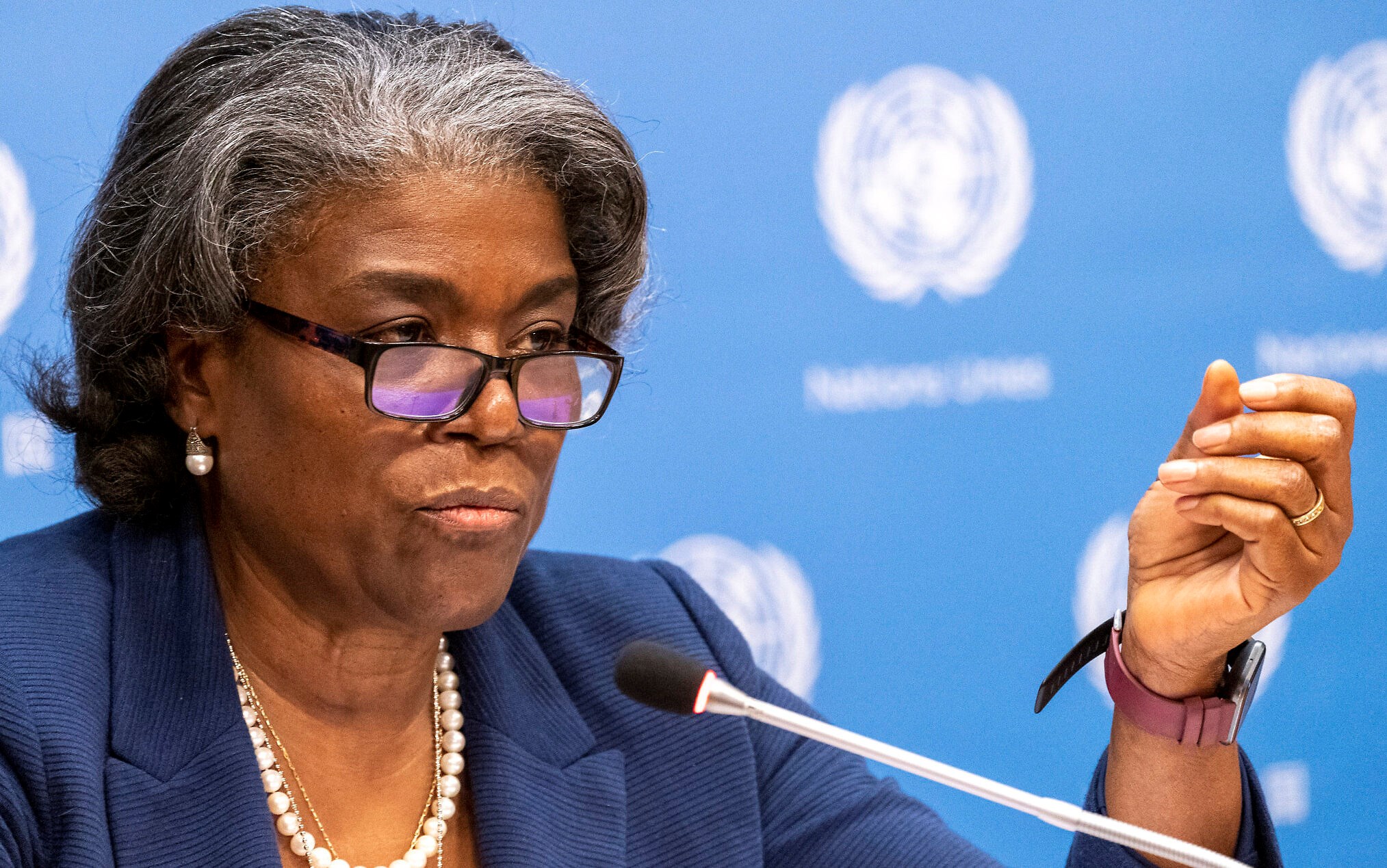US hints at possibility of not reaching nuclear deal with Iran
US permanent representative to the United Nations hints at the possibility of not reaching an agreement regarding Iran's nuclear program.
-

US Ambassador to the United Nations Linda Thomas-Greenfield during a news conference at United Nations headquarters, on March 1, 2021 (AP)
Washington does not rule out not reaching a nuclear deal with Iran in Vienna, US Ambassador to the United Nations Linda Thomas-Greenfield said Tuesday.
Regarding the Joint Comprehensive Plan of Action (JCPOA), Thomas-Greenfield said, some progress was made on several issues seen as pivotal for a return to the agreement, though she highlighted that there were several things that needed to be done.
"We do not have an agreement now, and it is possible that we do not reach one," she revealed, noting that the US would work with the international community to pressure Iran if diplomacy fails.
The diplomat's words came despite US State Secretary Antony Blinken underlining earlier today that returning to the Iran nuclear deal was the only way to confront the Iranian nuclear "threat" in light of the Vienna talks.
The Vienna talks, which also include the United Kingdom, France, Germany, Russia, and China, have been on hold since March 11, with officials saying at the time that the final draft was virtually complete.
The talks between major powers and Iran aim to revive the 2015 nuclear agreement and return the United States to it following Washington's unilateral withdrawal in 2018 under then-President Donald Trump, who accompanied his decision with the imposition of harsh sanctions on Tehran.
Iran has been stressing that its nuclear program is purely for civilian purposes, while hopes for a deal remain slim. However, Washington seeks to revive the nuclear deal, because, as state secretary Blinken said, reviving the nuclear deal is still in the interests of the US.
Iran to pursue diplomacy until agreement is reached
Iran will continue the path of diplomacy until achieving a final agreement in the Vienna nuke talks, Iranian Foreign Minister Hossein Amir-Abdollahian told his Irish counterpart, Simon Coveney, on Tuesday.
In addition to developing and proposing political initiatives, Amir-Abdollahian said, Iran has shown that it has the necessary will to reach a good, strong, and lasting agreement in Vienna.
"Now, it is the American side that has to, by adopting a realistic approach, rectify [former US President Donald] Trump's illegal behavior and take steps in the direction of [developing] political initiatives," he noted.
Coveney commended Iran's initiatives in the Vienna talks, highlighting the necessity of reaching a "good" agreement through the diplomatic process that would be capable of safeguarding the interests of Tehran as well as the other parties.
Since April 2021, eight rounds of talks have been held in the Austrian capital of Vienna. The US has been indirectly involved in the negotiations, as it has withdrawn from the deal.
According to Western diplomats, European officials are preparing to try and make another push to salvage the nuclear deal with Iran, offering to send senior EU negotiators to Tehran in an effort to reach an agreement.
Enrique Mora, Brussels' negotiations coordinator, informed his Iranian counterpart that he was ready to return to Tehran to break the stalemate, the diplomats said while revealing that Mora was yet to receive an invitation.
One of the remaining points in the Vienna Talks was the removal of the Islamic Revolution's Guard Corps (IRGC) designation as a terror group. The terror designation means that criminal penalties would be imposed on anyone doing business with any individual or entity connected to the IRGC.
Iran demanded the removal of the IRGC's "terrorist" designation before negotiations proceeded, but bipartisan opposition in Washington and anger from Israelis at the prospect of the removal of the designation prevented the US from proceeding through that.

 4 Min Read
4 Min Read








